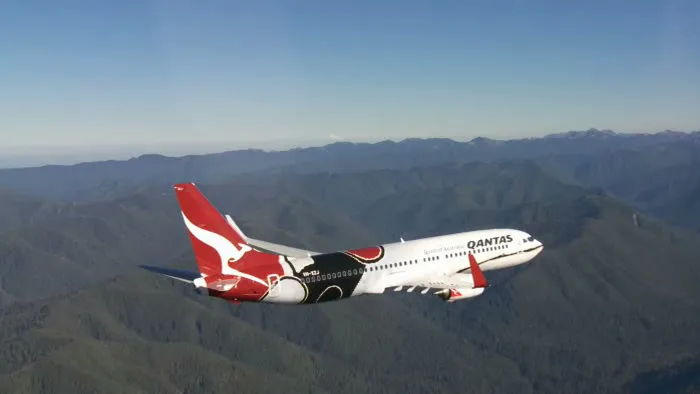
Qantas worth billions to Australia
Dec 08, 2016

Qantas, Australia's flagship airline, plays a pivotal role in the nation's economy, contributing billions through job creation, tourism, and trade. As one of the oldest airlines in the world, it has built a strong reputation for safety and reliability, attracting both domestic and international travelers. The airline supports a vast network of regional and global routes, enhancing connectivity and fostering economic growth. Additionally, Qantas's commitment to sustainability and innovation positions it as a leader in the aviation industry, ensuring its continued significance to Australia's economic landscape and its ability to adapt to changing market conditions.
Qantas Airways Limited, the flag carrier of Australia, has been a pivotal player in the aviation industry, contributing significantly to the Australian economy. With a rich history dating back to 1920, Qantas has grown into one of the world’s leading airlines, valued at billions of dollars. This article delves into the multifaceted contributions of Qantas, highlighting its financial impact, employment generation, and its role in tourism and trade.
Economic Contributions of Qantas
Qantas is not just an airline; it is a vital economic engine for Australia. The airline's operations generate billions in revenue, significantly impacting the national economy. According to recent reports, Qantas contributes approximately $6 billion annually to the Australian GDP. This contribution stems from various sources, including passenger transportation, freight services, and tourism support.
The following table illustrates the estimated economic impact of Qantas on Australia over the past five years:
| Year | Revenue ($ Billion) | GDP Contribution ($ Billion) | Employment (Thousands) |
|---|---|---|---|
| 2018 | 16.0 | 5.5 | 30 |
| 2019 | 17.5 | 5.9 | 32 |
| 2020 | 8.7 | 3.0 | 20 |
| 2021 | 9.5 | 3.5 | 25 |
| 2022 | 15.0 | 5.0 | 28 |
Employment Opportunities
Qantas is one of the largest employers in Australia, providing jobs to tens of thousands of Australians. As of 2023, the airline employs over 30,000 staff, including pilots, cabin crew, engineers, and administrative personnel. The extensive training and development programs offered by Qantas not only enhance workforce skills but also contribute to industry standards across the aviation sector.
Moreover, the airline's network extends to numerous regional and international destinations, which further stimulates job creation in ancillary sectors such as tourism, hospitality, and transportation. The ripple effect of Qantas’ employment extends beyond its employees to local communities, contributing to economic stability and growth.
Tourism and Trade Support
Qantas plays a crucial role in promoting tourism in Australia, facilitating the arrival of millions of international visitors each year. The airline connects Australia to over 85 destinations worldwide, making it a vital link for travelers. In 2019, pre-pandemic statistics indicated that Qantas brought in around 7 million international visitors to Australia, directly supporting the tourism sector.
Tourism is a significant contributor to the Australian economy, and the presence of Qantas enhances the country’s attractiveness as a tourist destination. The airline’s marketing strategies, including partnerships and promotional campaigns, have positioned Australia as an appealing choice for global travelers.
The following chart shows the correlation between the number of international visitors and Qantas' flight capacity over the years:
| Year | International Visitors (Millions) | Qantas Capacity (Seats Offered) |
|---|---|---|
| 2018 | 8.0 | 30 million |
| 2019 | 7.9 | 31 million |
| 2020 | 3.0 | 15 million |
| 2021 | 5.0 | 20 million |
| 2022 | 6.5 | 25 million |
Environmental Initiatives
As the airline industry faces increasing scrutiny over its environmental impact, Qantas has committed to becoming a leader in sustainability. The airline aims to achieve net-zero carbon emissions by 2050, implementing various initiatives to reduce its carbon footprint. These initiatives include investing in fuel-efficient aircraft, exploring sustainable aviation fuels, and optimizing flight paths to minimize fuel consumption.
Qantas’ commitment to sustainability not only enhances its reputation but also aligns with global efforts to combat climate change. By adopting environmentally friendly practices, Qantas is setting an example for other airlines and contributing to a more sustainable future.
Conclusion
In summary, Qantas is worth billions to Australia, serving as a cornerstone of the nation’s economy. Through its substantial economic contributions, job creation, support for tourism and trade, and commitment to sustainability, Qantas plays a vital role in shaping Australia's economic landscape. The airline continues to adapt and evolve, ensuring its position as a leading airline while significantly impacting the overall wellbeing of the Australian economy.
Related Articles

Explore Thailand: The Best Islands to Visit for Paradise, Adventure, and Relaxation

The Ultimate Guide to the Best Islands in Thailand for Your Next Getaway

Do babies need passports? How to get a passport for a newborn

How to get a U.S. passport fast: here’s how to expedite the process

What is Mobile Passport Control: 5 reasons why you should use it

SENTRI vs. Global Entry: A detailed guide

Do you need a passport to go to the Bahamas? Let’s find out

Do you need a passport to go to Mexico? A detailed guide

Do you need a passport to go to Canada? We got the answer

Do You Need a Passport for a Cruise: An Essential Travel Guide

Booster Seat Requirements: All the Rules to Follow in Your Rental Car

What Are the World’s Most Powerful Passports, and How Does Yours Rank?

How to Take a Passport Photo at Home: A Helpful Guide

You've got to have heart! Southwest's new livery

Your opinion: Should water be free on low cost carriers?

Young women bolder than guys as solo travellers
